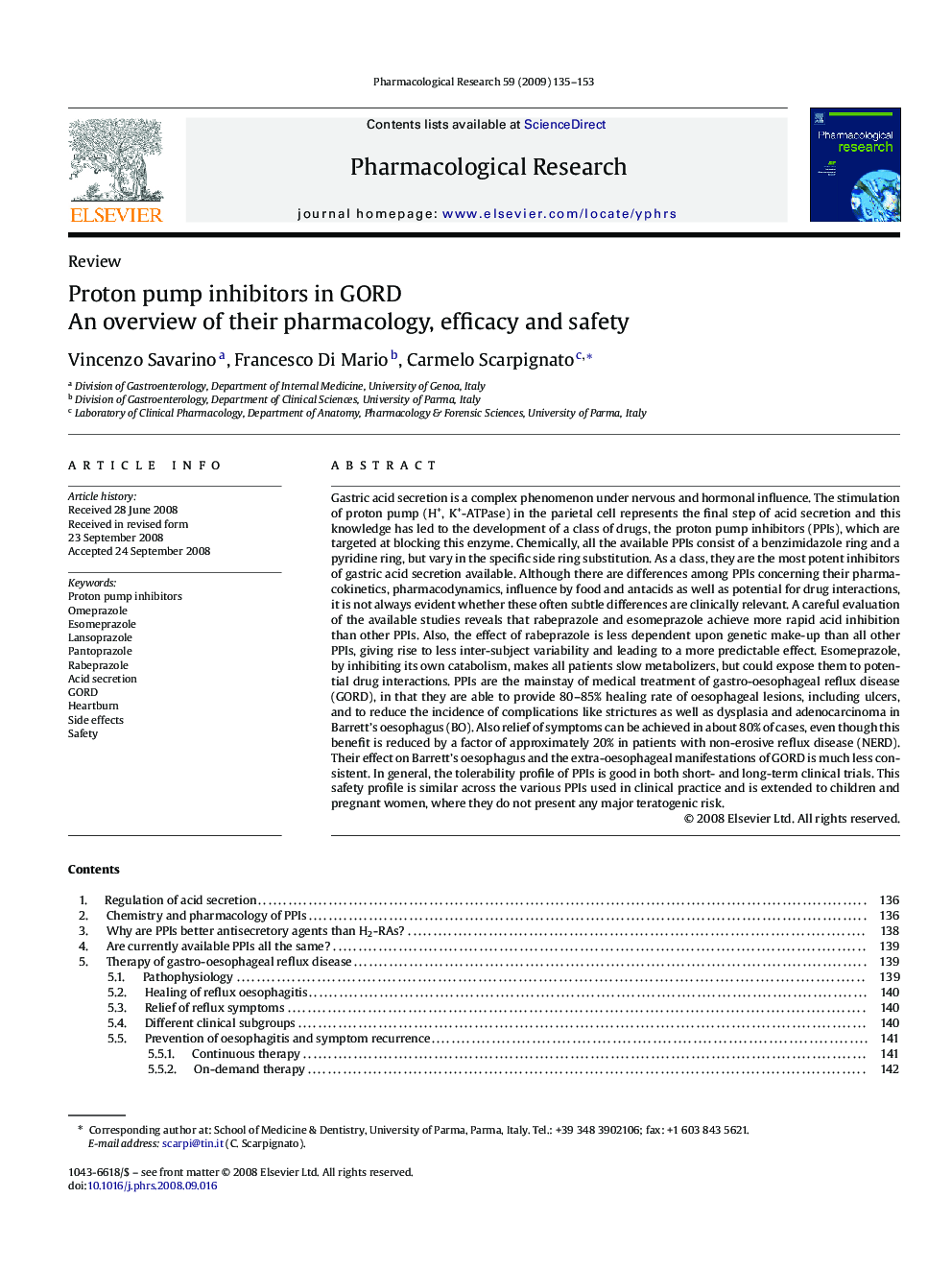| کد مقاله | کد نشریه | سال انتشار | مقاله انگلیسی | نسخه تمام متن |
|---|---|---|---|---|
| 2562563 | 1127129 | 2009 | 19 صفحه PDF | دانلود رایگان |

Gastric acid secretion is a complex phenomenon under nervous and hormonal influence. The stimulation of proton pump (H+, K+-ATPase) in the parietal cell represents the final step of acid secretion and this knowledge has led to the development of a class of drugs, the proton pump inhibitors (PPIs), which are targeted at blocking this enzyme. Chemically, all the available PPIs consist of a benzimidazole ring and a pyridine ring, but vary in the specific side ring substitution. As a class, they are the most potent inhibitors of gastric acid secretion available. Although there are differences among PPIs concerning their pharmacokinetics, pharmacodynamics, influence by food and antacids as well as potential for drug interactions, it is not always evident whether these often subtle differences are clinically relevant. A careful evaluation of the available studies reveals that rabeprazole and esomeprazole achieve more rapid acid inhibition than other PPIs. Also, the effect of rabeprazole is less dependent upon genetic make-up than all other PPIs, giving rise to less inter-subject variability and leading to a more predictable effect. Esomeprazole, by inhibiting its own catabolism, makes all patients slow metabolizers, but could expose them to potential drug interactions. PPIs are the mainstay of medical treatment of gastro-oesophageal reflux disease (GORD), in that they are able to provide 80–85% healing rate of oesophageal lesions, including ulcers, and to reduce the incidence of complications like strictures as well as dysplasia and adenocarcinoma in Barrett's oesophagus (BO). Also relief of symptoms can be achieved in about 80% of cases, even though this benefit is reduced by a factor of approximately 20% in patients with non-erosive reflux disease (NERD). Their effect on Barrett's oesophagus and the extra-oesophageal manifestations of GORD is much less consistent. In general, the tolerability profile of PPIs is good in both short- and long-term clinical trials. This safety profile is similar across the various PPIs used in clinical practice and is extended to children and pregnant women, where they do not present any major teratogenic risk.
Journal: Pharmacological Research - Volume 59, Issue 3, March 2009, Pages 135–153